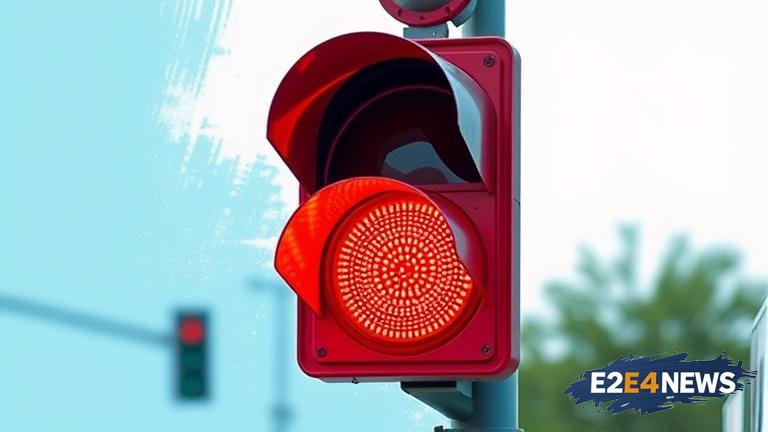A recent development in Idaho has seen the city of Boise discontinuing its red light camera program, following the enactment of a new state law. The law, which was passed by Idaho lawmakers, prohibits the use of automated traffic enforcement cameras, including red light cameras. As a result, Boise has been left with no choice but to abandon its program, which had been in operation for several years. The decision has sparked a heated debate over the effectiveness of red light cameras in improving traffic safety, with some arguing that they are a valuable tool in reducing accidents and others claiming that they are simply a revenue-generating scheme. Proponents of the cameras point to studies that have shown a significant reduction in accidents at intersections where the cameras are installed. However, opponents argue that the cameras are often used as a way to generate revenue for cities, rather than to genuinely improve safety. The new law has been welcomed by some, who see it as a victory for motorists who have been unfairly targeted by the cameras. However, others have expressed concern that the loss of the cameras will lead to an increase in accidents and near-misses at intersections. The city of Boise had been using the cameras to monitor intersections and issue fines to motorists who ran red lights. The program had been in operation since 2011 and had generated significant revenue for the city. However, the new law has meant that the program is no longer viable, and the city has been forced to shut it down. The decision has also raised questions about the role of technology in traffic enforcement, with some arguing that cameras are a more effective and efficient way to monitor intersections than traditional policing methods. Others have raised concerns about the potential for bias in the use of cameras, particularly in communities where there may be a disproportionate number of low-income or minority residents. The abandonment of the red light camera program in Boise is likely to have significant implications for traffic safety in the city, and it remains to be seen how the city will adapt to the loss of this enforcement tool. In the meantime, motorists are being advised to exercise extra caution when driving through intersections, particularly during peak hours. The city is also exploring alternative methods of traffic enforcement, including the use of traditional policing methods and public awareness campaigns. Despite the controversy surrounding the use of red light cameras, there is widespread agreement that traffic safety is a critical issue that needs to be addressed. The city of Boise is committed to finding new and effective ways to improve traffic safety, and the abandonment of the red light camera program is seen as an opportunity to explore new approaches. The new law has also sparked a wider debate about the role of state government in regulating local traffic enforcement policies. Some have argued that the state should not be interfering in local matters, while others see the law as a necessary step to protect the rights of motorists. As the city of Boise moves forward without its red light camera program, it is likely that there will be ongoing debate and discussion about the best way to improve traffic safety. The city is committed to working with state lawmakers and other stakeholders to find solutions that balance the need for safety with the need to protect the rights of motorists. In the end, the abandonment of the red light camera program in Boise is a complex issue that reflects the challenges of balancing competing priorities in traffic enforcement. While there are valid arguments on both sides, the city is committed to finding new and effective ways to improve traffic safety, and the debate over the use of red light cameras is likely to continue for some time to come. The city’s decision to abandon the program has also been influenced by the need to prioritize other traffic safety initiatives, such as improving road infrastructure and promoting public awareness campaigns. As the city moves forward, it is likely that there will be a renewed focus on these initiatives, and the abandonment of the red light camera program will be seen as an opportunity to explore new approaches to traffic safety. The use of technology in traffic enforcement is also likely to continue to evolve, with new innovations and approaches being developed to improve safety and efficiency. The city of Boise is committed to staying at the forefront of these developments, and the abandonment of the red light camera program is seen as a chance to explore new and innovative approaches to traffic enforcement.





